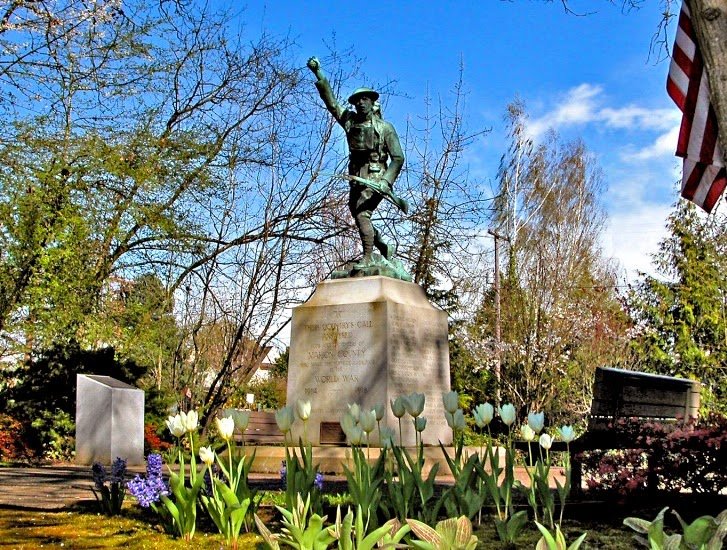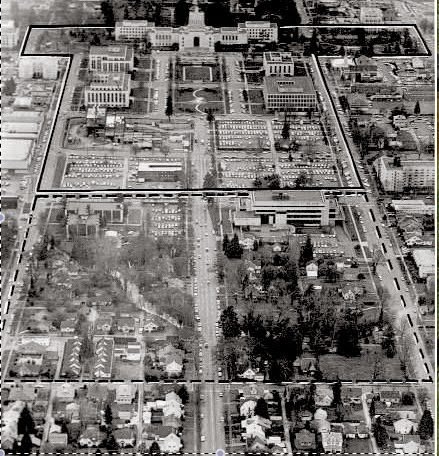World Events
- US and UN forces enter Gulf War with operation “Desert Storm” to expel Iraqi forces from Kuwait. Seventh months later, Iraqi soldiers in retreat set fire to Kuwaiti oil fields. These fires put out after extensive efforts.
- The 74 year-old Soviet Union collapses as 11 member nations become independent. Russia is renamed as the Russian Federation with Boris Yeltsin as elected president. The city of St. Petersburg regains its name. Yugoslavia is divided into Croatia and Slovenia. Germany regains complete independence from WW II occupying countries.
- Exxon pays one billion dollars to clean up Valdez oil spill.
- Thurgood Marshall, the first African-American Supreme Court Justice, retires. In the confirmation hearings for nominee Clarance Thomas, former aid Anita Hill testifies to his abusing her. Her testimony is disregarded and he is confirmed.
- The police beating of Rodney King is caught on tape and shown on world-wide on TV. Four Los Angeles police officers go on trail.
- The Academy Awards: “Silence of the Lambs”(US),”Mediterraneo (Italy) Prize-winning Books: Mating, Norman Rush and Rabbit at Rest, John Updike.
In 1991 the Cecil L. Edwards Archives Building was completed. Prior to 1946 Oregon had no Archive structure, no unified approach existed for preserving historical state records. The Secretary of State had custody of the records of the Legislative Assembly and the Governor. All other departments and agencies cared for their own records or placed them in the State Library, however many were presumably destroyed. Moreover, the fire that destroyed the state Capitol in 1935 consumed additional valuable records. The 1945 Legislative Assembly allocated a small amount of money to start the program under the State Library. David Duniway was hired in 1947 as Oregon’s first state archivist and served for almost thirty years. He set up shop in the basement of the State Library Building, developing policies and procedures designed to improve government record keeping and preserve the most valuable documents. Eventually, the operation moved into a large warehouse with four floors of storage. Further growth and the need for climate controlled storage areas led to the opening of the current building.
When you Visit
In the Lobby of the Archives visitors are processed into the building and its records for individuals use. Archivists within the Reading room will help find the appropriate records.
North Capitol Mall Review 1937-1991
North Capitol Mall before 1984
North Capitol Mall was now complete except for one more building that would be erected in 2002-3, the Capitol Mall Office Building. This undated photograph (also featured in an earlier year) was taken before 1984 when the state had not finished constructing buildings in the area within the dotted lines. The State Agriculture and Employment buildings are completed, facing south to Union Street. Residences remain in the blocks north, toward D Street (lower dotted line) between Capitol and Summer Streets. They will be moved or demolished for the Veterans’ Affairs Building and for the Archives (see below).
At left center of the photograph above, where the Mill Creek crosses Capitol Street, stood the Cole house, now on Hood Street. To the north (toward the foreground of the photograph) was the Hinges/Kimball house, now a private residence at 1075 Capitol Street. The neighboring Parrish and Rockenfield houses, owned by the City of Salem, are at A. C. Gilbert Discovery Village. These properties are all designated as Local Landmarks.
Before the state construction, Parrish Street cut west across from Capitol Street, and many smaller houses on each side were moved to Williams Street. The small courtyard apartments on D Street (see them at left above dotted line) are in an adjoining Williams Street development created for them.
On the area between Summer and Winter streets, the State Lands Building was completed in 1990. Several houses on the east side of Winter Street escaped demolition: the historic Moon House and German Methodist Parsonage were moved to complex of older homes off D Street and completely renovated to retain their original integrity; the Stiff, Huntington, and McGilchrist house were incorporated as offices into the Capitol Mall Heritage Park at D Street between Summer and Winter Streets. This natural area south of “D” Street and bordering Mill Creek is landscaped for pleasant moments of reflection by this historic waterway. Grant Neighborhood is directly north of “D” Street.
Other events
- R.G. Andersen-Wyckoff becomes mayor.
- This busy activity of the Salem Public Library is interrupted this year by a major renovation that caused the facility to temporarily relocate for several months during construction. One handsome addition of the main floor was the Heritage Room, the result of the generosity and the foresight of the descendants of two Salem Area families. It honors Max and Martha Gehlar and Gov. Douglas and Mabel McKay. Handsome tables, chairs and cabinets were built by Dave and Bob Anderson as their contribution to the Heritage Room. The new Loucks Lecture hall was named for former mayor, Al Loucks, an active library supporter. Not so apparent to the public was the establishment of the library’s database, with its Oregon Historical Photograph Collections (used generously in this feature).
- Jim Scheppke is appointed the State Librarian, a position he held for 20 years until his retirement in 2011. As a convenience for visits to the State Library and other buildings of the North Capitol Mall, an underground parking garage serving the North Capitol Mall is added at this time.
-

The World War I Doughboy at Oregon Veterans Memorial Park The 1924 World War I Doughboy statue is relocated to the memorial park at the Veterans’ Building. It is now a part of a collection of military memorials north of the building and along Winter Street on the west side of Mill Creek.
- To acknowledge the health risks of tobacco use, the Salem Hospital becomes smoke-free. In the next ten years, smoking in Oregon’s commercial establishments and all public buildings will disappear.
- Proposition 5 passes: Property taxes dedicated for school funding were capped at $15.00 per $1,000 of real market value per year, and gradually lowered to $5. Property taxes for other purposes were capped at $10 per $1,000 per year. Thus the total property tax rate would be 1.5% at the end of the five-year phase in period. The measure transferred the responsibility for school funding from local government to the state, to equalize funding.
- A local ballot proposal to fund a Willamette riverside park and hotel on city property purchased from Boise Cascade is defeated.
- The Willamette Landing condominium complex is completed on Water Street in North Salem offering housing directly on the shore of the Willamette River. The lack of interest in purchasing “condos” leads the owner to offer the units as rentals.



One Comment